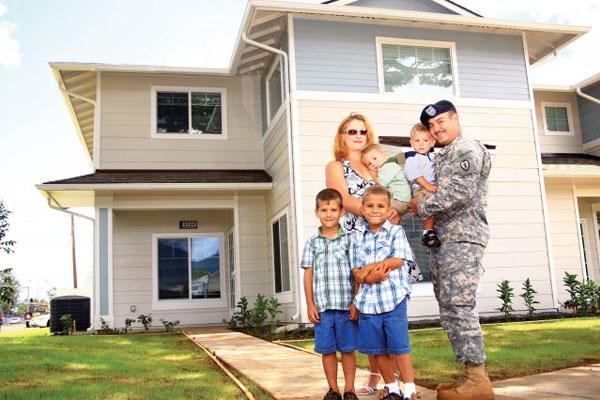Defense spending reforms should try to increase retention by cutting back benefits that currently serving troops don't highly value, such as retiree health care, and keeping what they do, such as the Basic Allowance for Housing, one expert says.
Troops simply don't value programs like the Medicare supplement Tricare for Life and dependent health care enough to justify their current cost to the Defense Department, says Todd Harrison, a defense budget expert and senior fellow at the Center for Strategic and International Studies bipartisan think tank in Washington, D.C.
Harrison believes the benefits funded by the Pentagon should instead be based on what service members value now -- not what they might value later. And that's cash.
"The people we are trying to recruit and retain are those who are currently serving," he said. "They may be wrong about the way they value benefits, but the reality is that if they don't value it, then it's not a good form of compensation. The fact that they may value it in 30 years from now doesn't help you, because you have to give them things they value now."
Harrison made the argument this week in a Politico.com op-ed.
A Senate proposal in the 2017 National Defense Authorization Act would require troops to receive BAH payments equal to their actual rent, rather than a lump sum based off local housing market costs.
Harrison says making such a change would prompt troops to move into bigger and more expensive housing than they would otherwise choose and significantly alter a benefit troops have said they very much like.
For example, he says, Tricare for Life costs about $7 billion a year and is used only by retirees over age 65. The Pentagon sets aside about $5,000 a year for each current service member in order to fund the benefit, he says, though only about 20 percent will stay in the service long enough to use it.
"But if you ask junior folks in the military 'how much do you care about this … how much is it impacting your decision to stay in the military?' [They say] 'zero,'" he said.
On the flip side, troops see the housing allowance as cash compensation -- something they put high value on, Harrison said. Keeping that makes good sense, he said.
"If you're going to make changes in compensation, you should cut things that are less valued by service members and protect the things that are more valued," he said. "If you're going to do something -- if you've got to make cuts -- make it by tweaking these other programs where they don't value it."
Rather than passing sweeping reforms that would impact troops and retirees who are currently using the benefits, Harrison suggests making changes that would grandfather those users in and impact new troops only, much like a series of recent budget proposal have done. Those proposals have yet to receive a green light from Congress.
Military compensation advocates say that while they agree with Harrison's views on the housing allowance, the idea of instead cutting other benefits that troops don't think are important right now is misguided.
"If prioritizing benefits to cut was easy, we would've done it already," said Kelly Hruska, the government relations director for the National Military Family Association. "You value different things at different points in your career. A 25-year-old may not give a flying fig about child care, but maybe in 10 or 15 years that child care is suddenly really important to him."
-- Amy Bushatz can be reached at amy.bushatz@military.com.






























